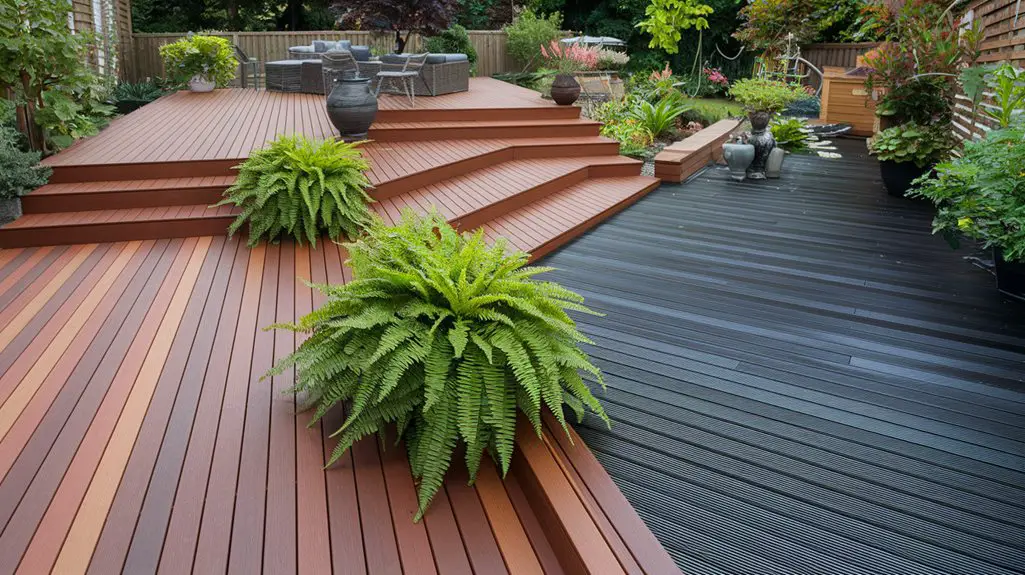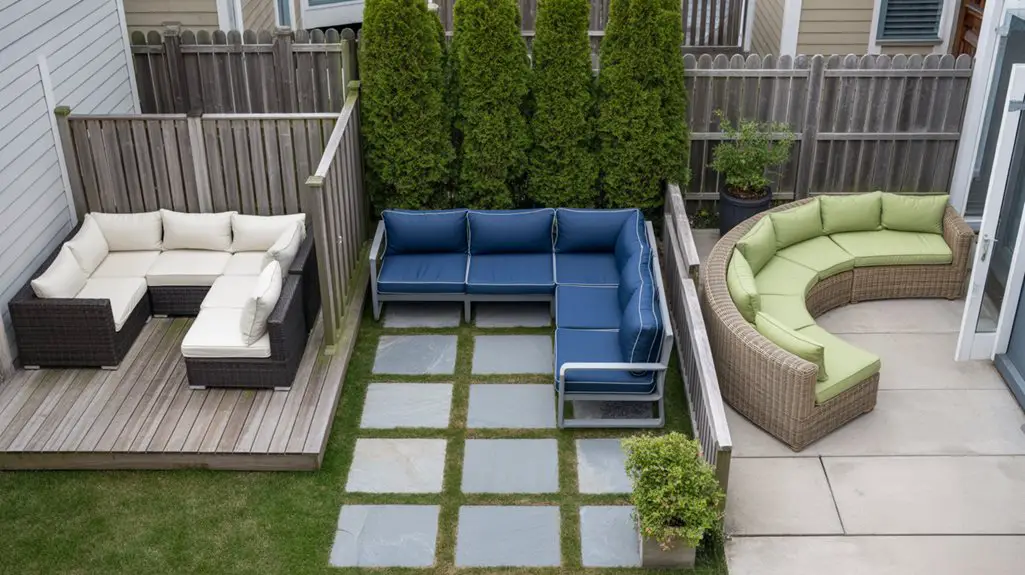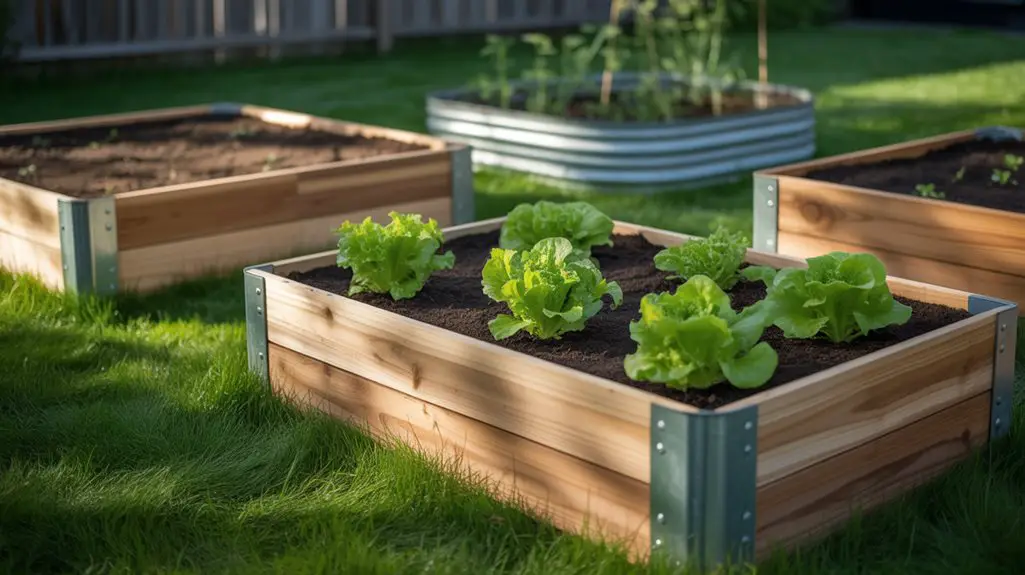Did you know that your decking choices can offset more carbon than they produce? When you’re planning your outdoor space, the materials you select impact both your home’s aesthetic and its environmental footprint. From reclaimed timber that tells a story through its weathered grain to high-tech composites engineered from post-consumer waste, today’s eco-friendly decking options don’t compromise on performance or design. The sustainable solution for your backyard awaits in these innovative alternatives.
Reclaimed Wood Decking: Beauty With Environmental Benefits
The timeless charm of reclaimed wood offers a compelling introduction to sustainable decking solutions. Salvaged from old barns, factories, and warehouses, these materials divert valuable timber from landfills while reducing demand for virgin lumber.
You’ll find reclaimed wood’s rich patina, weathered textures, and unique markings create unmatched aesthetic character impossible to replicate with new materials. Each board tells a story through its nail holes, saw marks, and natural aging.
Installation requires careful assessment for structural integrity and often demands specialized fastening techniques due to hardened, dense fibers. Pre-drilling is typically necessary.
For maintenance, apply eco-friendly sealants every 2-3 years to preserve the wood’s integrity while enhancing its natural beauty. Additionally, reclaimed wood contributes to renewable resources by promoting the reuse of existing materials rather than harvesting new timber.
Select suppliers with Forest Stewardship Council certification to guarantee ethical sourcing practices.
Composite Decking Made From Recycled Materials
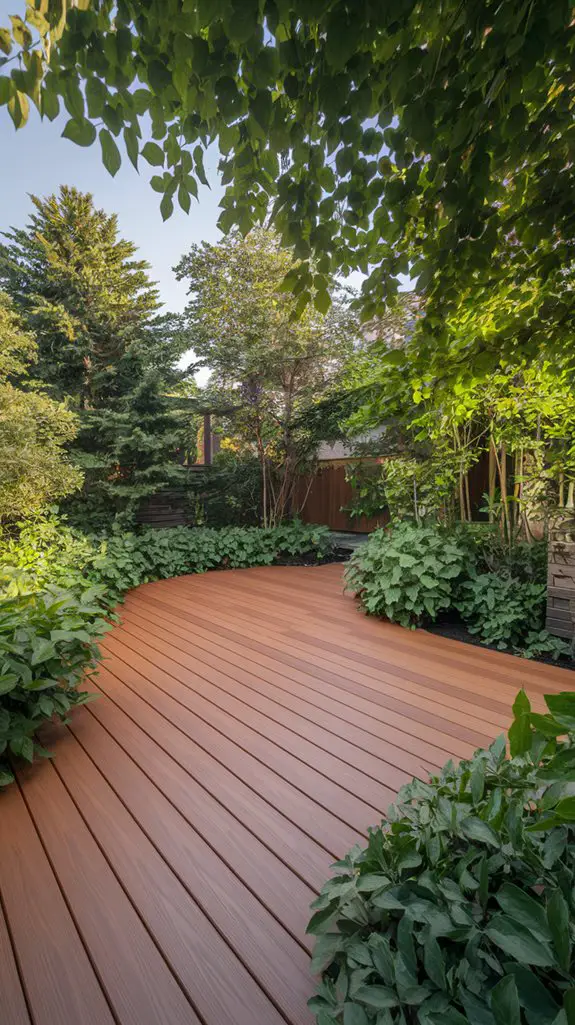
While traditional lumber demands ongoing treatment with potentially harmful chemicals, composite decking manufactured from recycled materials offers an ingenious solution to backyard sustainability challenges. These innovative products combine reclaimed plastic and wood fibers that would otherwise end up in landfills, transforming waste into durable outdoor living spaces.
| Brand | Recycled Content | Environmental Impact |
|---|---|---|
| Trex | 95% recycled materials | Saves 400M+ pounds of plastic annually |
| TimberTech | Up to 80% recycled content | Zero water pollution in manufacturing |
| Fiberon | Contains 94% recycled wood fiber | Prevents deforestation of 1M+ trees yearly |
| MoistureShield | 95% recycled content | Carbon-negative production process |
| NewTechWood | 95% recycled materials | Certified cradle-to-cradle sustainable |
You’ll appreciate composite decking’s resistance to rot, warping, and insects without chemical treatments, typically lasting 25-30 years with minimal maintenance.
Bamboo Decking: A Rapidly Renewable Resource
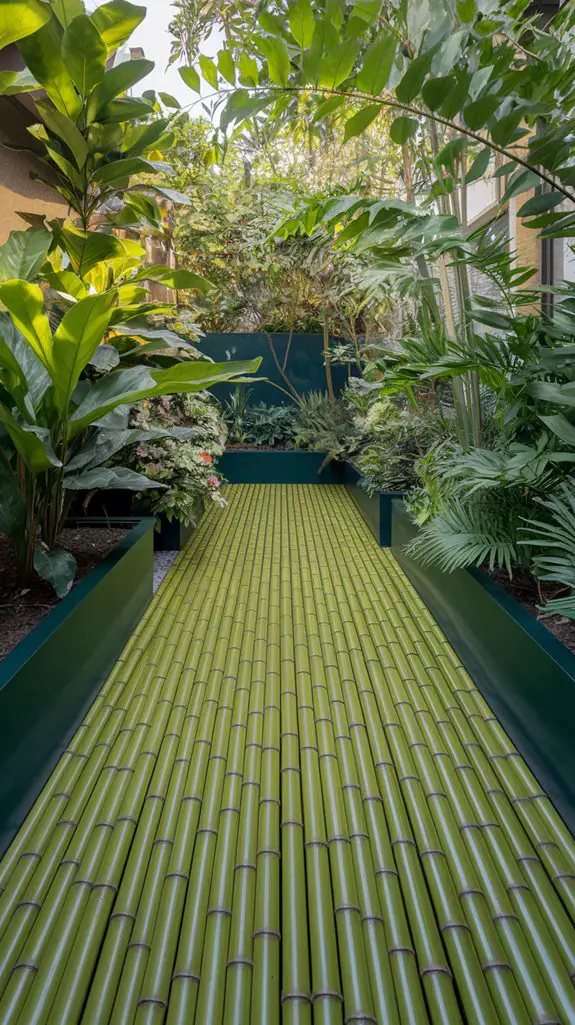
Moving beyond recycled composites, bamboo emerges as a standout natural alternative that combines exotic aesthetics with impressive ecological credentials.
Unlike hardwoods that take decades to mature, bamboo reaches harvest readiness in just 5-7 years while absorbing 35% more carbon dioxide than equivalent trees.
You’ll find bamboo decking offers exceptional dimensional stability and a tensile strength rivaling steel. Its natural silica content provides inherent resistance to insects and decay without chemical treatments.
Today’s engineered bamboo decking features strand-woven construction and UV-resistant finishes that maintain color integrity for 25+ years. Additionally, incorporating eco-friendly water features can further enhance the sustainability and aesthetic appeal of your garden.
When sourcing bamboo decking, verify FSC certification to ascertain sustainable harvest practices.
While initially more expensive than traditional options, bamboo’s longevity and minimal maintenance requirements deliver superior lifetime value for eco-conscious homeowners.
Modified Wood Options for Enhanced Durability
Modified woods represent a revolutionary advancement in sustainable decking materials, transforming softwood species through thermal or chemical processes to achieve hardwood performance without environmental compromise.
You’ll find these engineered products offer exceptional dimensional stability and resistance to decay while utilizing responsibly harvested timber.
- Thermally modified wood undergoes high-temperature treatment that restructures the cellular composition, eliminating the need for chemical preservatives while boosting resistance to moisture and insects.
- Acetylated wood uses a non-toxic acetic anhydride process to replace free hydroxyl groups, preventing cellular absorption of water and extending lifespan to 25+ years.
- Furfurylated wood infuses plantation-grown pine with furfuryl alcohol derived from agricultural waste, creating a durable product with rich, consistent coloration.
These innovations deliver premium performance with considerably reduced ecological footprint compared to tropical hardwoods.
Aluminum Decking: The Lifetime Eco-Friendly Solution
Although often overlooked in traditional decking discussions, aluminum represents perhaps the most sustainable long-term investment for eco-conscious homeowners. It’s 100% recyclable with no degradation in quality, meaning your deck could theoretically be repurposed indefinitely.
| Feature | Benefit |
|---|---|
| Recyclability | 100% recyclable without quality loss |
| Lifespan | 50+ years with minimal maintenance |
| VOC Emissions | Zero – no off-gassing |
| Fire Rating | Class A – non-combustible |
| Carbon Footprint | Lower than wood when accounting for lifespan |
You’ll never need to apply chemicals for preservation, eliminating toxic runoff into your soil. The powder-coated finish resists fading, scratching, and provides slip resistance even in wet conditions. While the initial investment exceeds wood options, its zero-maintenance requirements and exceptional longevity deliver superior lifetime value and environmental performance.
Conclusion
Your backyard deserves decking that’s both beautiful and earth-friendly. Whether you’re drawn to reclaimed wood’s vintage telegram charm or composite’s recycled innovation, today’s sustainable options don’t compromise on performance. Bamboo offers rapid renewability, modified wood delivers chemical-free durability, and aluminum provides lifetime value. By selecting these eco-conscious materials, you’re creating an outdoor space that harmonizes with nature while reducing your environmental footprint.

